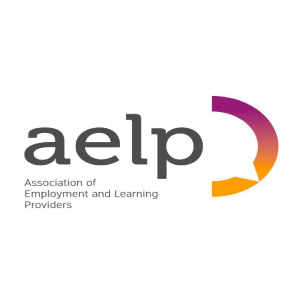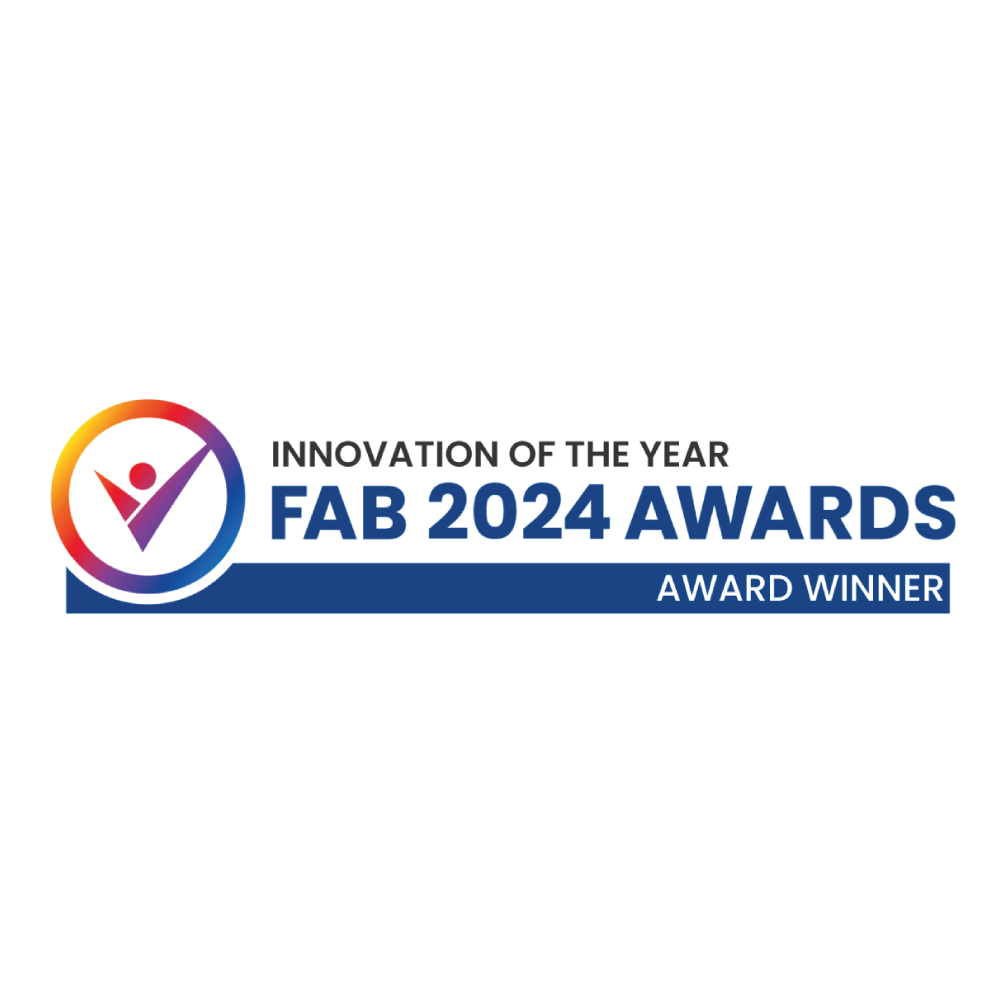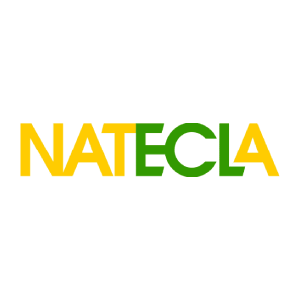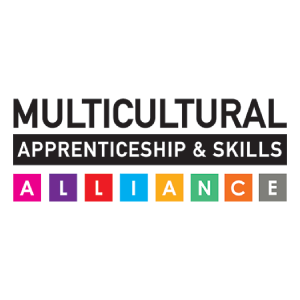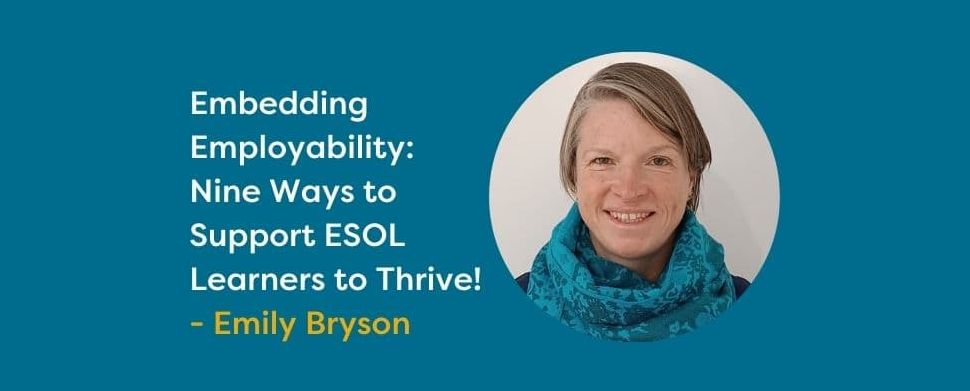
Embedding Employability: Nine Ways to Support ESOL Learners to Thrive! – Emily Bryson
There are many reasons why ESOL learners wish to learn English:
- Making Friends
- Living in an English–speaking country
- Communicating with schools, medics & local community
- Studying or re-training
- Employment
I always found that employability, a comfortable standard of living and the promise of wider opportunities were some of the main reasons my learners prioritised their English learning.
In this blog post and sketchnote below I’ll outline some of my top tips for incorporating workplace skills into the ESOL classroom.
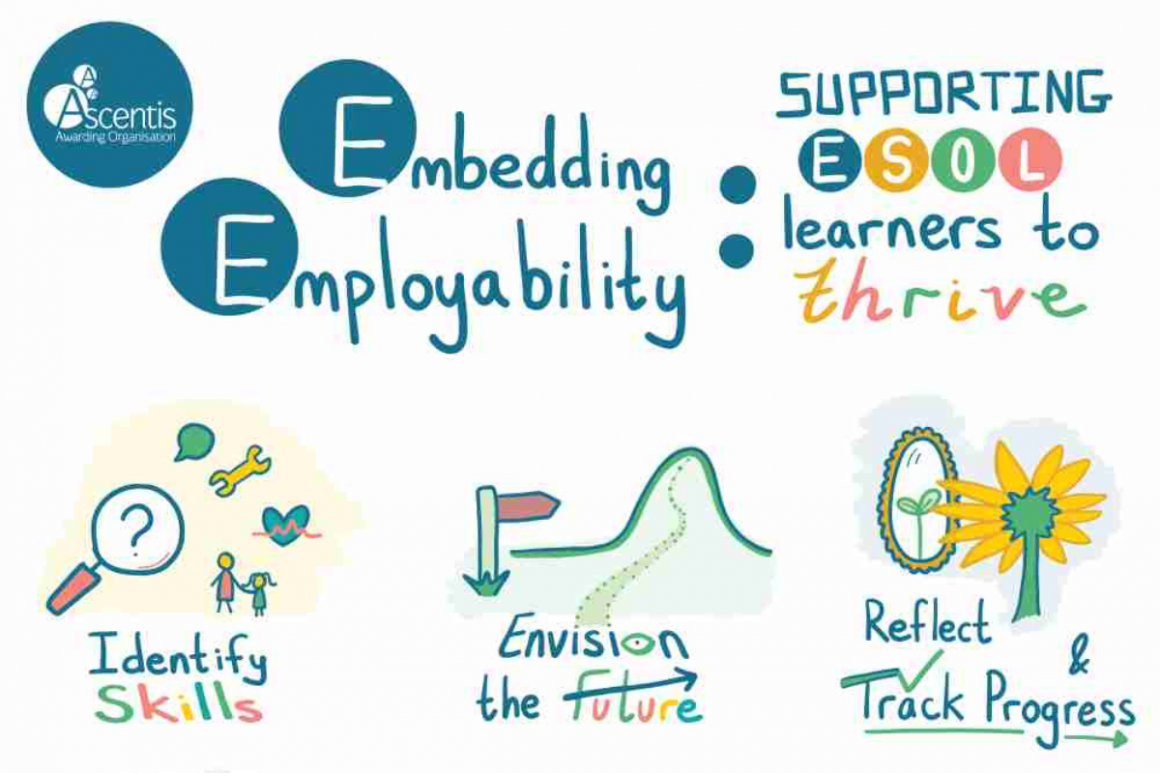
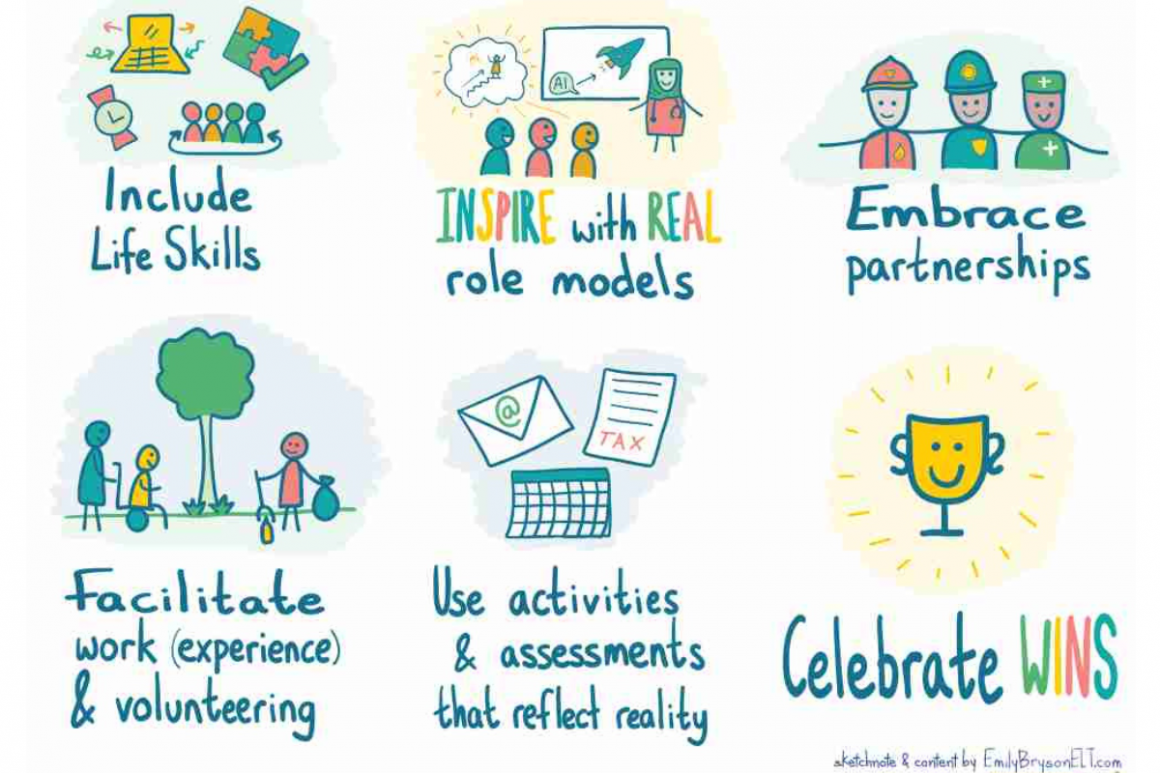
1. Identify Skills
ESOL learners come to classes with a whole manner of diverse skills. Many are multi-lingual, have highly skilled qualifications, have run businesses and have varied work, study and life experiences.
However, some learners find it difficult to identify their skills, or give credit to their own prior knowledge. An empowering and invaluable activity is to consider transferable skills that they may have developed in various aspects of their lives.
For example, parents will have developed time management skills from juggling meals, school runs and extracurricular activities). They’ll also be adept at prioritising, problem solving and budgeting. On top of that, they’ll have developed skills in emotional intelligence, negotiation, motivating others and communicating empathetically.
Moreover, ESOL learners are resilient and adaptable. They have learned to navigate complex immigration routes, communicate in stressful situations, cope with major life changes and new environments as well as persevere with education, training, work and home office pressures. That takes some pretty advanced organisation skills, flexibility and motivation.
In class, learners will also develop academic skills such as delivering presentations, research, note-taking and writing. They may also have digital skills such as writing emails, working on online platforms and word processing.
All these skills and experiences are valuable and can be transferred to the work environment. Helping students to identify them is empowering and can help them to create impressive CVs and gain confidence in their abilities.
2. Envision the Future
Every learner will have their own unique dreams, ambitions and goals. Identifying and visualising these is one of the first steps in moving towards them. Some may feel overwhelming, and unattainable, but the process of writing them down or visualising them can help students to think big. It can also help them break larger plans into manageable and actionable chunks.
Some learners may find it difficult to consider their future while their immigration status is uncertain. However, considering wider dreams if barriers such as time, money, education, family and immigration status were not an issue can be powerful. This can also be light-hearted and fun by using tools such as visual templates.
For example, draw a galaxy of stars on the whiteboard. In this galaxy there are no barriers and they can live their dream life. Have students think about what their life might look like there. Start with simple things such as daily life, activities they love doing then build in wider ideas such as friends, family and work-life balance.
3. Reflect & Track Progress
Take a moment to think back to where you were five years ago. What were you doing? Where were you living? Where were you working or studying? Now consider your current situation. How have you grown and developed?
I have used this example here as I think it is a good way of demonstrating how life naturally progresses over time. However, we need to tread carefully here with our ESOL learners. It may be distressing for them to think back to their previous lives so we need to choose the timeframe and context carefully.
In class, we can support learners to reflect on their distance travelled throughout the duration of the course. For example, have them track their confidence with certain skills as the course progresses, or keep an example of their work from the beginning of the course and compare it with their work at the end.
4. Include Life Skills
Life Skills are often referred to as 21st Century Skills or Essential Skills. These include competencies such as critical thinking, creativity, communication and collaboration. They also include digital skills such as sending an email, word processing and accessing online learning.
The ESOL classroom lends itself to life skills development. For example:
- Role Plays to boost negotiation & customer service skills
- Presentations to develop confidence with public speaking (and creating PowerPoints)
- Written tasks submitted via email to develop word processing skills
- Reading local sites for job & volunteering opportunities to develop research skills
- Problem based collaborative tasks to support team working, communication & problem solving
5. Inspire with REAL role models
Role models can inspire and motivate learners. They can also convince them that their dreams are achievable. Some of the most enthusing role models for ESOL learners are their very own peers and people who have been in similar situations to themselves.
Inviting previous learners back into the classroom to give talks about how they went from A1 English learner to the Manager of a Care Home (or B2 learner or owner of a Barber Shop, etc, etc, etc) is REAL and REALly motivating. They can share their real-life challenges, how they overcome them and tips for local organisations who can support them.
If it is a bit tricky to find speakers like this, start in the classroom. Every learner has something inspiring about them. Have them share their ideas of how they can inspire each other. Also discuss their own role models and who inspires them.
You could also share information about the following people. I have chosen them because they are REAL to me because I have met or taught them in Glasgow:
- Roza Salih – Roza came to Scotland as an asylum seeker from Kurdistan in her teens. At school, she campaigned for the Scottish Government to stop dawn raids on asylum seeking families – and won! You can watch the incredible story in this film: The Glasgow Girls. She is now a councillor for Glasgow City Council.
- Tsegay Tewelde – Tsegay represented the UK in the Olympics in Rio. He is a marathon runner who came to Glasgow from Eritrea and ran with the Shettleston Harriers.
- Badradeen Mohammed– Badradeen came to Glasgow in his teens from Sudan. He has now self-published books about his experiences and frequently delivers moving poetry recitals.
6. Embrace Partnerships
We are all stronger together and there are many organisations out there who can help learners practise their English, develop their skills and find work. Reaching out to these organisations and developing partnerships can lead to all sorts of opportunities.
- Invite people in to speak about training & support opportunities
- Organise class trips to local employers, job agencies and training providers
- Work with local organisations to run projects (e.g. community gardens, litter picks)
Search online for organisations who might like to work in partnership. Ask around for recommendations and find out who is already supporting your learners. Every area is different and will have different opportunities. In my experience training providers, volunteer support agencies, employment agencies and even local police and fire stations are always happy to connect. There may even be meet up groups especially for community groups to connect or job agencies who specialise in working with migrants or people from refugee backgrounds.
7. Facilitate Work, Work Experience & Volunteering
Work, work experience and volunteering are extremely valuable for ESOL learners. Getting out and about can increase their social connections, provide opportunities for organic language practise and help them develop their skills. Work experience placements and volunteering can also often lead to paid work.
Working in partnership with local employers, employment agencies and volunteer agencies can make this process simpler for learners. Try to connect learners with these opportunities through class visits, or even inviting a representative in on a regular basis.
In class, you could help them explore local adverts, complete application forms and practise interview skills. This will introduce them to local opportunities and will also give them the confidence to apply and to do so enticingly for the employer. The application process in the UK can be quite unfamiliar, so developing skills in writing (and adapting) personal statements, CVs and cover emails is essential.
8. Use Activities & Assessments that Reflect Reality
As above, practising real-world skills such as navigating complex application systems are indispensable. So too are bringing realistic work tasks into the classroom. Role plays where students solve customer service problems can develop critical thinking skills, and be entertaining.
For example:
You work in a car wash. The customer asked you to wash the car and wax it. While you were washing it, you noticed a scratch near the back wheel. When the customer pays, they accuse you of scratching it. Role play being the customer and the car wash assistant.
This is just one example. Tailor it to the learners’ context and have them create their own from their own experiences.
You could also have a skills sharing day where students learn from each other. For example, how to paint nails, crochet, thread eyebrows or make a traditional dish. This process can be a lot of fun and will help students gain confidence with skills they already have by teaching them to others, as well as provide an opportunity to learn new ones.
9. Celebrate WINS!
This is perhaps the most important of all. Celebrating when learners develop a new skill, move up a level, pass an assessment or get a new job or volunteer placement is a crucial confidence boost. Every step is significant progress, no matter how small. Give students the recognition they deserve with verbal praise or visually tracking their progress on a journey map graphic tool.
The Ascentis assessments and courses aim to support ESOL learners towards success. They are based on real world scenarios and developing real-world skills.
You can find out more about them here.

Emily Bryson is an ELT professional with extensive experience in the ESOL classroom. She has written various print and digital materials, including National Geographic Learning’s Voices & Impact series, 50 Ways to Teach Life Skills and the A-Z of ESOL. She is passionate about diversity, equity and inclusion and the use of visual tools and graphic facilitation strategies to make learning more engaging, accessible and fun. Her visual thinking themed resource packs and teacher development courses bring a unique visual sparkle to ELT classrooms.
You can see more of Emily Bryson’s English Language Teaching themed sketchnotes and visual thinking activities at www.EmilyBrysonELT.com/sketchn… You can follow her @EmilyBrysonELT on Instagram & Facebook.

